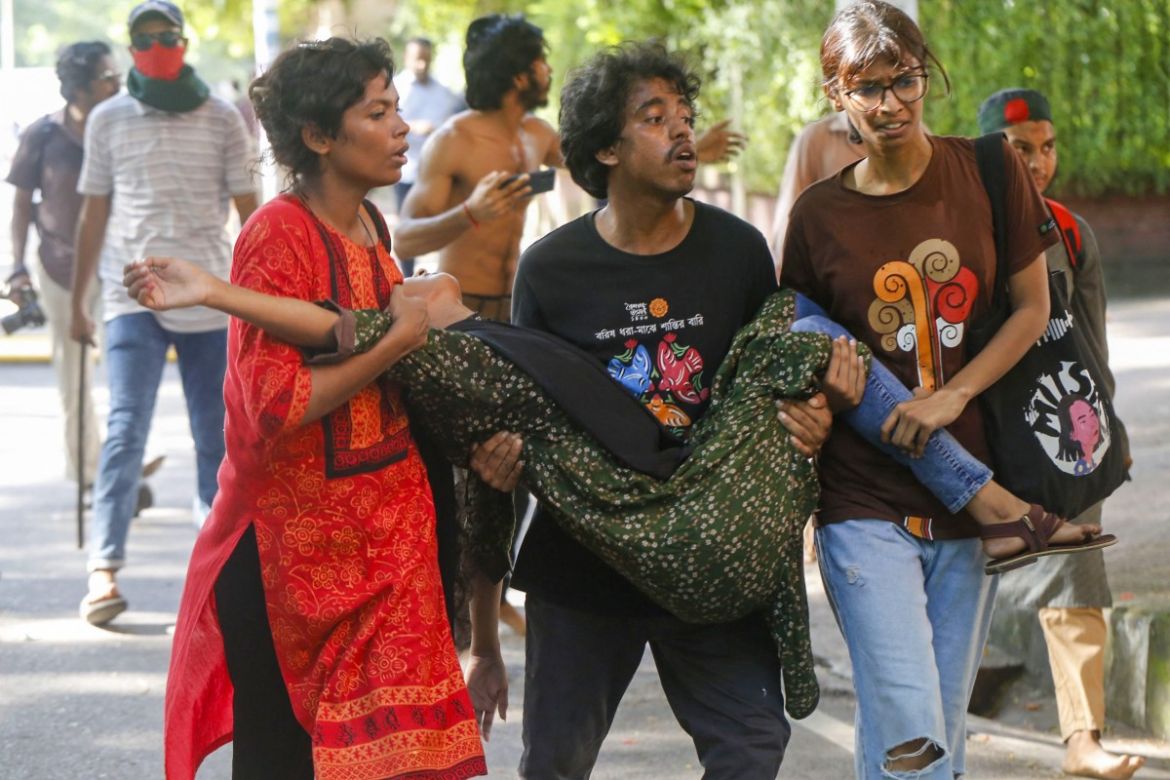
In recent days, Bangladesh has witnessed a wave of student protests that have shaken the nation and drawn attention both locally and internationally. What started as a focused demonstration against the cancellation of government job reservations quickly escalated into a broader movement with profound implications for the country’s political and social landscape.
The spark that ignited this unrest was the government’s decision to abolish quotas for certain groups in public sector jobs, a move intended to promote meritocracy but seen by many as a blow to social justice and opportunities for marginalized communities. Students, feeling the impact of this decision on their future prospects, took to the streets in unprecedented numbers.
What began as peaceful protests soon turned volatile. Reports emerged of clashes between demonstrators and law enforcement, resulting in tragic casualties. As of now, six students have lost their lives, and over 500 have been injured in confrontations with police and alleged counter-protesters. The scenes of burning vehicles at night underscore the intensity of emotions and the scale of discontent among the youth.
The government’s response has been swift and drastic. In an effort to contain the unrest, all schools across Bangladesh have been shut down indefinitely, disrupting the education of millions of students. The Higher Secondary exams, a critical milestone for many, have been postponed indefinitely, further exacerbating tensions and uncertainties among the youth.
Political dynamics have also come into play. The student wings of various political parties, including the Bangladesh Nationalist Party (BNP), have entered the fray, both supporting and opposing the protests. G.M. Kader, a prominent leader of the BNP, went as far as to liken the student protesters to the freedom fighters of Bangladesh’s past, a statement that galvanized support for the movement among some quarters and intensified polarization in others.
The echoes of these protests reverberate beyond the immediate demands of the students. They symbolize a broader struggle for justice, opportunity, and the right to dissent in a country grappling with rapid socio-economic changes and political turbulence. The government’s decision to close schools and delay exams reflects the gravity of the situation, yet it also raises concerns about the long-term impact on education and the future of Bangladesh’s youth.
As the protests continue to unfold, the eyes of the nation and the world remain fixed on Bangladesh. The outcome of this unprecedented student movement could shape the country’s trajectory for years to come, influencing policies, politics, and the fundamental aspirations of its people.
